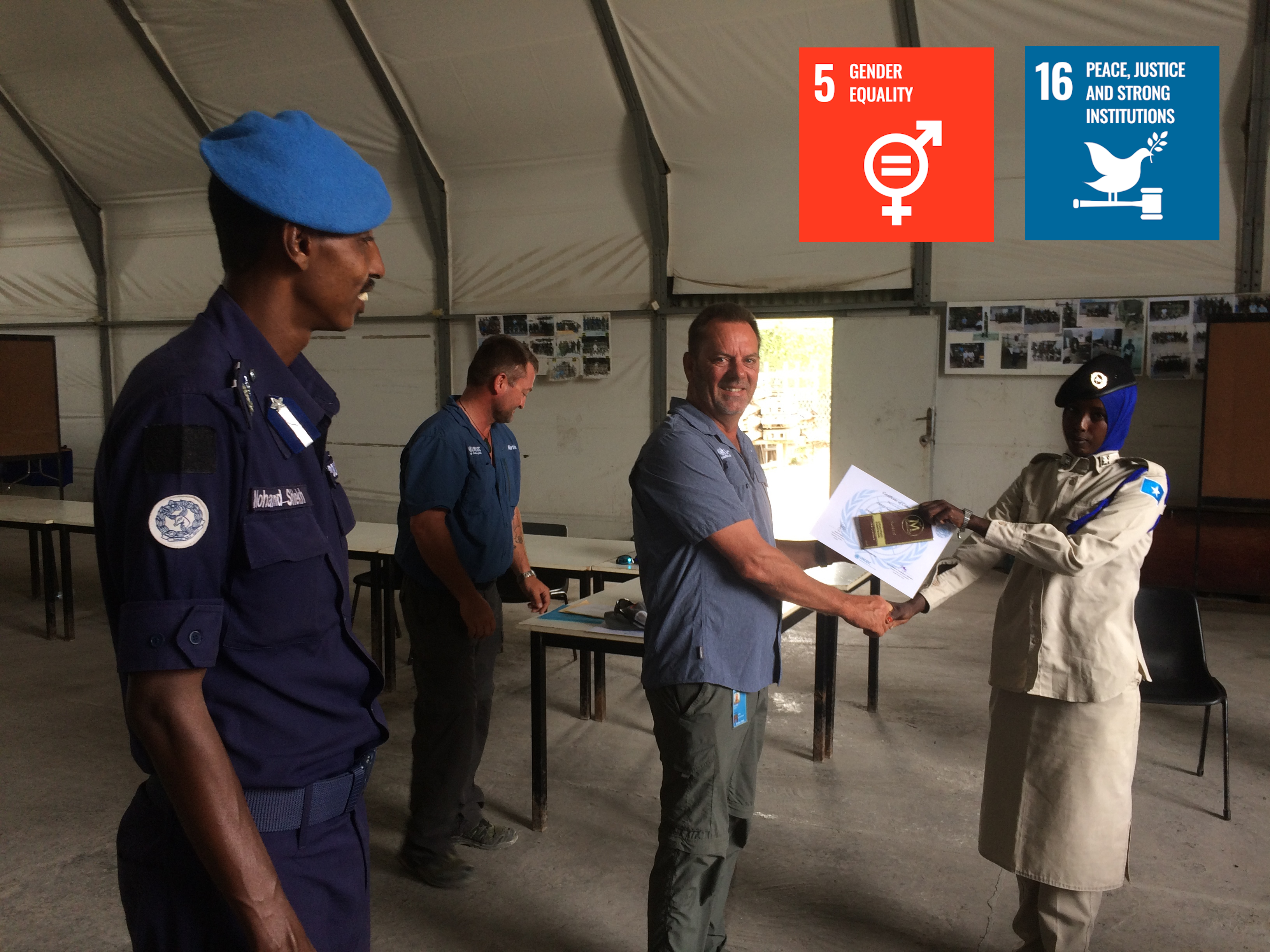 |
 Nadifo receiving her GMCP certificatePhoto: UNODC
Nadifo receiving her GMCP certificatePhoto: UNODC
Mogadishu, Somalia: Growing up, Nadifo Mohamed Ahmed has always aspired to become a police officer. Although the Somali police force is generally a male dominated environment, it did not deter her from pursuing her longstanding dream. In early 2017, she was successful in joining the Maritime Police Unit (MPU) and has thoroughly enjoyed the role ever since and made an important contribution to Somalia's efforts to deter and prosecute maritime crime and to assist victims of such crimes. MPU is responsible for controlling and protecting the Somali Coastline out of Mogadishu.
Her daily routine at MPU starts at 7:00am and ends at 2:00pm. Her everyday tasks include operations such as: Search and Rescue operations at seam, saving lives at sea and intercepting illegal boats during patrols. When asked about what she enjoys most about work she says, " Of all my tasks, what I enjoy most is Search and Rescue operations at sea especially, life-saving and distress call operations", and that she has, "... made a substantial number of friends from work since she joined". Prompted on what she enjoys least about her workplace, she acknowledges, " It is a male dominated environment. I hope the number of women in service will increase". She then went on to say that, " I am positive that the number will increase because, in the recent past, I have been receiving requests for information from other female police officers in the larger SPF on the possibility of them joining the MPU".
Globally, women like Nadifo play an important role in security both on land and in the maritime sphere. In 2017, UN Women produced a report looking at female representation in the Somali police forces. The document indicated some of the reasons for fewer females in MPU, including the view that female officers are regarded unfit for a hostile environment; and religion, culture and tradition which are widely against women and girls joining and working in the police force. The report concluded that females are discriminated against and prevented from joining the police forces.
Nadifo considers one of her greatest achievements in her role, is that she has managed to save lives at Lido Beach. She attributes this achievement to the trainings provided by UNODC's Global Maritime Crime Programme (GMCP). She believes that the trainings, which have been tailored towards maritime law enforcement capability, including learning how to swim and how to drive patrol boats, have provided her with all the necessary proficiencies needed to become a coxswain.
When MPU fully takes ownership of its maritime operations, to ensure sustainability and a smooth transition, Nadifo has requested that the UNODC's GMCP should increase both the number of training programmes for capacity building and provide more equipment for the MPU. With MLE training and more equipment, she believes that it will both benefit the MPU's overall efficiency and also enable her as a female to be placed evenly amongst her male counterparts, which will allow her to rise through higher ranks in the next 5-10 years. Nadifo's story demonstrates how global efforts are progressing to achieve gender equality (SDG5) and peaceful, just societies and strong institutions (SDG16).
In line with these efforts, UNODC adopted its own gender equality strategy in 2017. This strategy further demonstrates progress towards systematically and effectively mainstreaming gender and promoting gender equality and the empowerment of women.